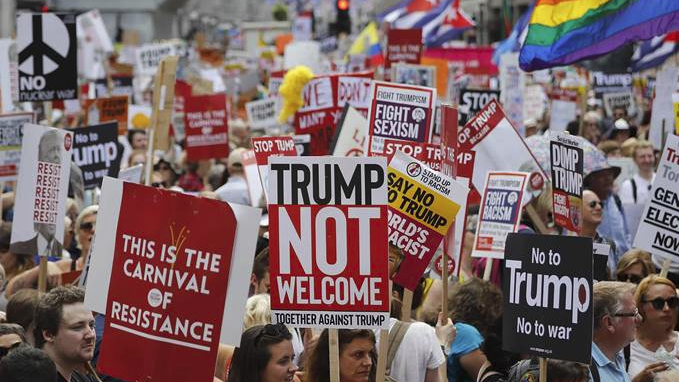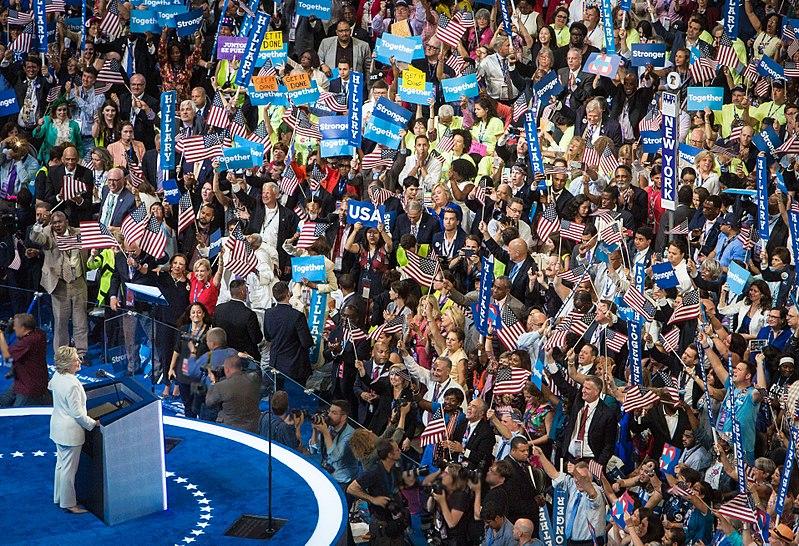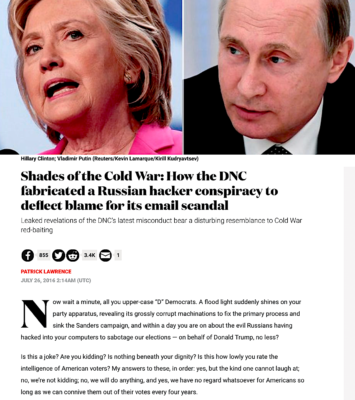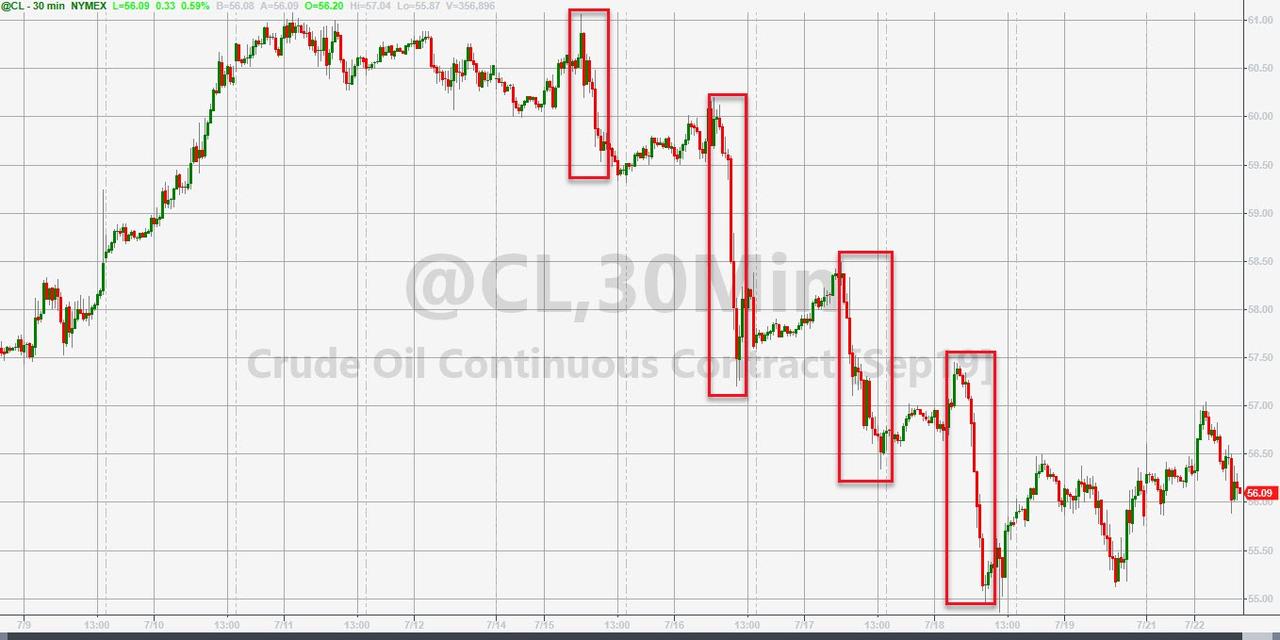
My recent Washington Post article on growing liberal support for federalism generated considerable interest. In this follow-up, I am going to further explore two possible reasons why liberal interest in federalism might turn out to be largely ephemeral: the possibility that it’s all a matter of “fair weather federalism” and the idea that modern liberalism is inherently centralizing, and therefore inherently inimical to constitutional limitations on federal power.
I. Is Fair-Weather Federalism Inevitable?
Fair-weather federalism is all too common. Both liberals and conservatives routinely invoke federalism when their opponents control Congress and the White House, only to ignore it when they hold the same reins of power themselves. There are plenty of recent examples during both the Obama and Trump administrations. If a Democratic president is elected in 2020 or 2024, liberal support for federalism could wane, much as many conservatives are now willing to turn a blind away to the Trump administration’s undermining of constitutional limits on federal power in its attempts to coerce sanctuary cities.
However, it is not true that attitudes towards constitutional limits on federal power are purely opportunistic. While there have been many cases of such opportunism, there are plenty of counterexamples, as well. With the exception of one unusual case, conservative judges have almost invariably ruled against the Trump administration’s recent attempts to coerce sanctuary cities by attaching new conditions to federal grants. In Gonzales v. Raich (2005), all four liberal Supreme Court justices ruled that the Commerce Clause allows the federal government to ban the possession of medical marijuana, even though these justices likely favored the state policy that got overridden by the federal government (3 of 5 conservative justices voted to strike the policy down, even though they probably sympathized with the federal ban on policy grounds). I believe Raich was a terrible decision. But it’s hard to deny that at least 7 of the 9 justices who voted on the case prioritized their general principles over immediate policy priorities.
More generally, from the New Deal until quite recently, conservatives tended to favor tighter judicial enforcement of federalism than liberals did; and this remained true across a wide range of administrations. Some specific policy controversies were obvious exceptions to this general rule. But the existence of exceptions does not prove that the rule was totally absent. Generally speaking, judges have tended to be more consistent in their positions on federalism than politicians and activists, in part because they are more removed from short-term policy debates, and have less incentive to sacrifice principle for the sake of immediate policy advantage.
It is easy to be cynical about not only federalism, but pretty much any other constitutional principle. Just as there are cases of fair-weather federalism, there are also cases of fair-weather separation of powers, fair-weather freedom of speech, fair-weather protection for the rights of criminal defendants, and so on.
In each of these fields, we can find people who support rigorous judicial enforcement of limits on government power when it benefits their side of the political spectrum, and a highly deferential attitude when it does not. Even so, there is broad agreement that each of these types of rules needs to be enforced with at least some substantial consistency and courts often do just that, even when the judges don’t particularly like the immediate political consequences. For example, many of the Court’s most important free speech decisions involve communist and neo-Nazi speakers whom few if any mainstream jurists feel any sympathy for.
The key question is whether judicial enforcement of federalism can become one of those principles for which there is substantial cross-ideological support. For the reasons outlined in my Washington Post article, I think liberals—as well as conservatives—have good reason to conclude that the answer should be “yes,” even if they did not think so in previous eras.
Among other considerations, federalism—like freedom of speech—provides valuable “insurance” against situations where your opponents hold the reins of power in Washington. Such insurance is especially valuable during periods of severe political polarization, like the one we are in right now. At such times, we need more protection against political adversaries than may otherwise be the case, because they are especially likely to enact policies deeply inimical to our values or interests. More generally, tighter limits on federal power can help promote coexistence in a large and highly diverse society.
The fact that liberals have good reason to commit to federalism doesn’t mean they necessarily will. The “fair weather” approach is still tempting to many (as is also the case with many on the right). But it is not inevitable they will succumb to it. Moreover, we can achieve adequately broad support for federalism even if not all liberals (or all conservatives) are genuinely committed to it. We just need a large enough cross-ideological coalition of committed federalists that they can make their influence strongly felt, often by working together with “fair weather” types on a case-by-case basis.
Some fair-weather federalism is probably inevitable. But it is not inevitable that it will dominate the system.
II. Is the Left Inherently Centralizing?
A deeper reason for pessimism about liberal interest in federalism is the concern that the political left is inherently pro-centralization. If their ultimate goal is to enforce uniform national policies on most significant political issues, then they are unlikely to ever support meaningful limits on federal power, except perhaps as an occasional short-term expedient.
This concern is not unreasonable. At least since the early twentieth century, the political left in the US has favored extensive federal government control of the economy, and—often—increased federal regulation of a wide range of “non-economic” issues.
In its most extreme “democratic socialist” variant, the modern left probably really is inherently inimical to federalism. It is difficult to think of any area that socialists would be willing to leave beyond the scope of federal power. And the kind of large-scale central planning required by socialism is ultimately incompatible with any significant autonomy for sub-national governments. While modern “democratic socialists” claim they do not advocate government ownership of the means of production, the extent of federal control they want to impose by less direct means, nonetheless amounts to central planning of the lion’s share of the economy.
The nonsocialist left is a different story. There is no inherent incompatiblity between advocating extensive—but not comprehensive—federal spending and regulation, while also recognizing significant limits on federal authority, including even on some “economic” issues. Liberals of this type could support broad federal power to spend money on “universal” entitlement programs, while also barring federal spending on a variety of local projects and giveaways to narrow special interests. In this way, they could support meaningful limits on federal power to spend money under the General Welfare Clause. Similarly, nothing in the non-socialist liberal agenda requires unlimited federal power to pressure states through “commandeering” or conditional spending grants. Indeed, as the sanctuary cities cases demonstrate, limits on that power can actually help protect liberal values.
Looking around the world, it is simply not true that the left universally rejects structural constraints on central government power within federal systems. In nations such as Canada, Australia, Germany, and Switzerland, the enforcement of such constraints enjoys broad support and does not systematically divide people along right-left ideological lines.
The main factor that has made the US different for most of the last 70-80 years is the association between “states’ rights” and oppression of racial and ethnic minorities. There is indeed anawful history of state governments repressing minorities. And, at several crucial points, federal power has curbed that oppression—most notably during the abolition of slavery and the triumph of the Civil Rights Movement in the 1950s and 60s.
Thus, many on the left came to the conclusion that the state autonomy is inimical to minorities, while federal power is their friend. The idea that this is true as a general general rule is, in my view, an oversimplification of American history. But, whatever may have been the case in earlier eras, it is not true today, for reasons well-explained by Yale Law School Dean Heather Gerken. As I emphasized in my Washington Post article, the Trump era is a dramatic illustration of this point, which Gerken began to make long before.
When it comes to federalism, the political left is currently flux, as it also is on a number of other issues. It is difficult to say where they will ultimately come down. It may turn out that liberals will continue to differ among themselves on federalism for some time to come.
But there is a real chance that left-wing support for robust limits on federal power will continue to increase. That tendency began to emerge before Trump. But the liberal reaction to his administration has given it a major boost. To the extent that the developments in American law and politics that gave rise to Trump go beyond his personal idiosyncracies (and I believe they do), the changing ideological valence of federalism might well outlive his time in the White House.
from Latest – Reason.com https://ift.tt/2Z2ikvI
via IFTTT








